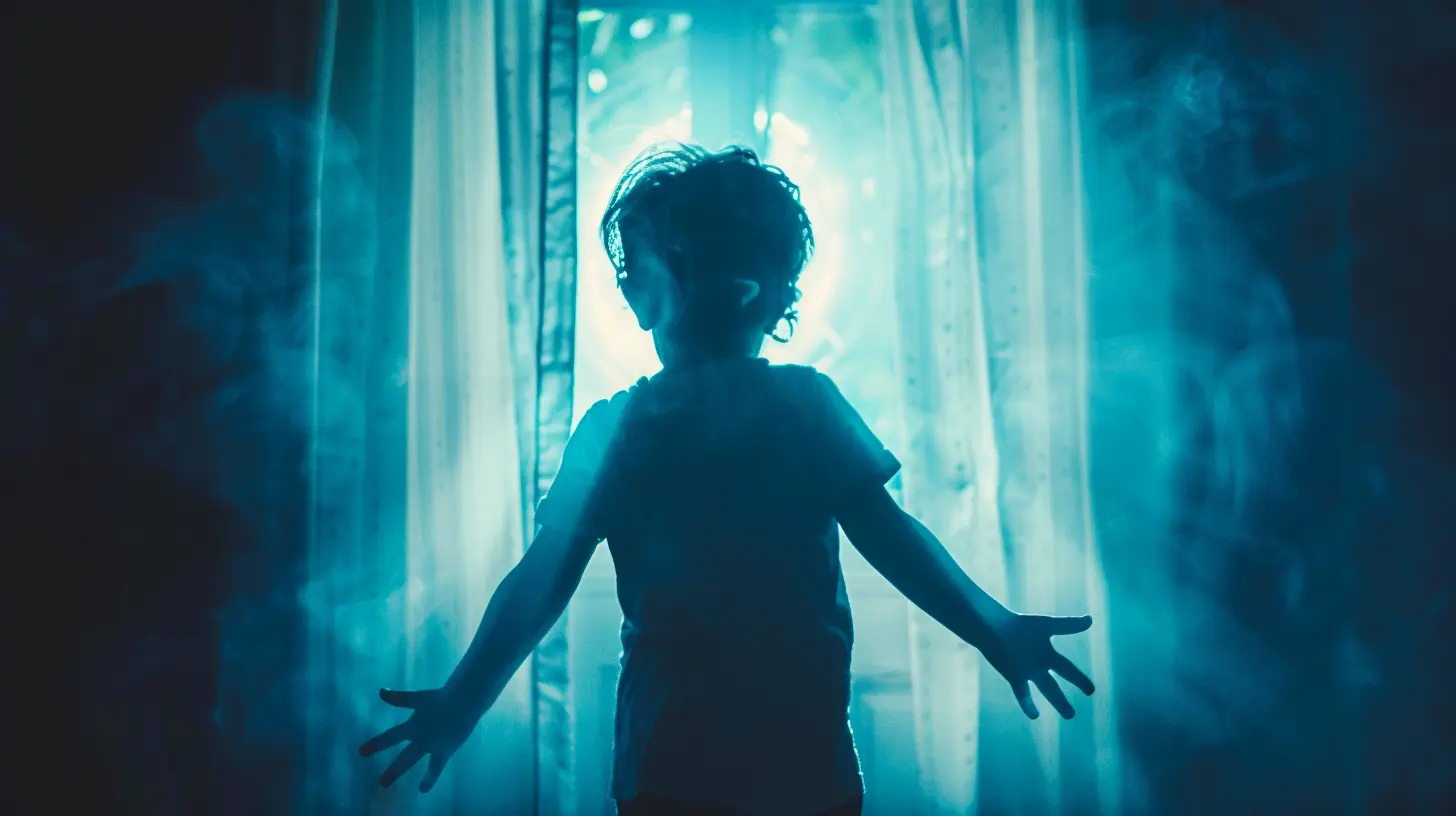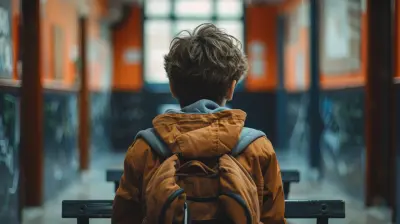26 February 2025
Let's face it—fear of the unknown is something we’ve all experienced. From starting a new job to moving to a new city, uncertainty can make even the bravest of us feel uneasy. Now imagine how your child feels when facing a new experience they can’t fully comprehend. Whether it’s starting school, making new friends, or even dealing with a dark, spooky room, that sense of insecurity can be overwhelming for them.
As parents, we have this superpower—we can guide our children through life’s curveballs and help them tackle their fears, big or small. But how exactly do we help them with something as abstract as the fear of the unknown? Good news: this is what we’ll dive into today! By the end of this post, you’ll have practical, gentle, and effective strategies that not only support your little one but strengthen the bond between you both.
Why Do Kids Fear the Unknown?
Before we jump into solutions, it's always good to understand where your child is coming from. Fear of the unknown is completely normal and, frankly, a survival instinct. Think of it like an internal alarm system—our brain tells us to be cautious about situations where the outcome is uncertain. For kids, who are still learning how the world works, this fear can feel ten times more intense.Your child might not have the words to say, "Hey, I’m scared because I don’t know what’s going to happen next," so it often shows up as clinginess, tantrums, or even physical symptoms like stomachaches. Recognizing and validating their feelings is the first step to helping them.
Signs Your Child Might Be Struggling With Fear of the Unknown
How do you know if your little one is wrestling with the fear of uncertainty? Well, their behavior often tells the story. Here are some common signs:- Avoidance: They avoid new activities, people, or places.
- Clinginess: They refuse to leave your side or have trouble separating from you.
- Sleep Issues: Trouble falling or staying asleep, nightmares, or refusing to sleep alone.
- Physical Complaints: Complaints about tummy aches or headaches that don’t seem to have a medical cause.
- Irritability or Anger: Acting out as a way of expressing their anxiety.
Once you spot these signs, you can start addressing their fear head-on with love, patience, and a pinch of creativity.
1. Start With Empathy: Acknowledge Their Feelings
The first and most important step? Let them know it’s okay to feel scared. Dismissing their fears might make them feel unheard and amplify their anxiety. Instead, acknowledge their feelings with open arms.For example, if your child is scared about starting a new school, you could say, “I understand you’re feeling nervous about meeting new friends and teachers. Starting something new can feel really big and a little scary, but I’m here to help you every step of the way.”
Here's a golden rule: Never minimize their fears, even if they seem irrational to you. Trust me, what feels small to you might feel like climbing Everest to them.
2. Break It Down Into Bite-Sized Chunks
The unknown feels massive to a child, almost like standing at the edge of the Grand Canyon. The trick? Help them break it down into small, manageable steps.Let’s say they’re terrified of joining a sports team. Instead of expecting them to dive right in, you could first take them to watch a practice session. Then, let them meet the coach. Next, let them participate in a short drill before moving on to full practices. Each tiny step builds their confidence and reduces the fear factor.
3. Be a Role Model
Kids watch us like hawks. If you approach new situations with confidence (even if you’re secretly sweating), they’ll notice. Show them how you deal with your own uncertainties. Share stories about times you were scared but pushed through—like starting a new job or learning to swim.You can say, “You know, I felt really nervous the first time I gave a presentation at work. But I took a deep breath, prepared as much as I could, and guess what? It turned out okay. I think you’re even braver than me, so I know you’ll do great!”
4. Teach Them to Reframe Fear
Here’s a fun little trick: Turn fear into curiosity. Instead of focusing on everything that could go wrong, encourage them to think about what could go right. This simple reframe can work wonders.For example, if they’re worried about going to a birthday party where they don’t know anyone, prompt them with, “What if you meet someone who loves dinosaurs as much as you do? Or what if the cake is your favorite flavor?” This helps them shift their focus from dread to anticipation.
5. Practice Visualization: Seeing Success
Visualization is like daydreaming with purpose. Guide your child to imagine a positive outcome in a new or scary situation. For instance, if they’re scared about their first piano recital, have them close their eyes and picture themselves playing beautifully while everyone claps.You can even role-play! Pretend to be part of the audience and cheer them on. This helps them “experience” success in their minds before the big day, making the real thing far less intimidating.
6. Equip Them With a Fear-Busting Toolkit
Sometimes, fear calls for practical tools. Teach your child calming techniques like:- Deep Breathing: Inhale for 4 counts, hold for 4, and exhale for 4. Repeat.
- Positive Affirmations: Help them come up with phrases like, “I am brave,” or, “I can handle this.”
- Comfort Objects: Sometimes, a familiar toy or blanket can provide the security they need.
Make it fun! You could turn deep breathing into a game by calling it “balloon breaths” and pretending to fill up an imaginary balloon with air.
7. Read Books or Watch Stories That Tackle Fear
Ever notice how kids love to see their favorite characters overcome challenges? It reassures them that they can do the same. Find books or movies where the main character faces a fear of the unknown. Classics like Inside Out or The Dark by Lemony Snicket can open the door to meaningful conversations about fear.Bonus tip: Discuss the story afterward. Ask questions like, “What would you do if you were in their shoes?” or “How do you think they felt in the beginning versus the end?”
8. Celebrate Every Little Win
Did your child walk into that new classroom without holding your hand? High five! Did they try a new food even though they were hesitant? Do a happy dance!Celebrating small victories builds confidence and teaches them that stepping into the unknown often leads to great things. Make the celebrations fun—stickers, a special treat, or even just an enthusiastic “I’m so proud of you!” will go a long way.
9. When to Seek Professional Help
Sometimes, fears can grow too big for you to tackle alone, and that’s okay. If your child’s anxiety is interfering with their daily life—like constantly refusing to go to school or having panic attacks—it might be time to reach out to a child therapist. These professionals are equipped with strategies to help children navigate fears in a healthy way.Wrapping It Up: You’ve Got This!
Helping your child deal with the fear of the unknown isn’t about eliminating their fear altogether—it’s about teaching them how to face it. By doing so, you’re not just helping them get through a tough situation; you’re giving them tools they can use for the rest of their lives.Remember, progress takes time, and every child is different. What matters most is that you’re there, cheering them on, holding their hand when they need it, and letting them know they’re never alone in this big, wide world.









Arianth Fry
Embracing uncertainty together can strengthen your bond. Show your child that it’s okay to feel scared, and encourage open conversations. Your love and support will empower them to face their fears with confidence.
March 26, 2025 at 5:33 AM